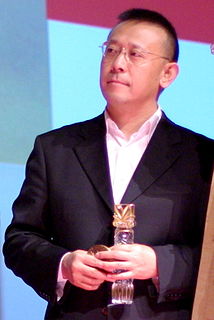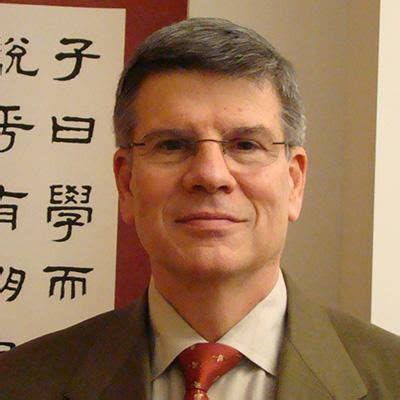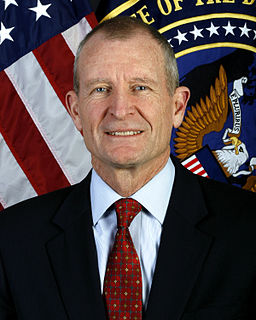A Quote by Jiang Wen
I think that as a Chinese person, nobody will forget that in China's history, there was a war against the Japanese.
Related Quotes
Revolutionary war is an antitoxin that not only eliminates the enemy's poison but also purges us of our own filth. Every just, revolutionary war is endowed with tremendous power and can transform many things or clear the way for their transformation. The Sino-Japanese war will transform both China and Japan; provided China perseveres in the War of Resistance and in the united front, the old Japan will surely be transformed into a new Japan and the old China into a new China, and people and everything else in both China and Japan will be transformed during and after the war.
However, there is a fundamental difference between the issue related to Japan's history and our negotiations with China. What is it all about? The Japanese issue resulted from World War II and is stipulated in the international instruments on the outcomes of World War II, while our discussions on border issues with our Chinese counterparts have nothing to do with World War II or any other military conflicts. This is the first, or rather, I should say, the second point.
When he served in China during World War II, [Ho Chi Minh] learned about Mao Zedong's tactics of guerrilla war against the Japanese (and later against Chiang Kai-shek's forces), and he translated some of Mao's works into Vietnamese. But it is clear that his own ideas on how to counter the enemy ran along the same lines.
If you expect the present day school system to give history to you, you are dreaming. This, we have to do ourselves. The Chinese didn't go out in the world and beg people to teach Chinese studies or let them teach Chinese studies. The Japanese didn't do that either. People don't beg other people to restore their history; they do it themselves.
In China, your freedom is always limited, but this limitation applies to almost everyone. If someone does injustice to you, though, you have to find a way to avenge yourself - even by illegal measures. In a sense, injustice is more personal. This idea has always been in Chinese history. I think we read about freedom of speech, or lack of freedom of speech, in China so often. But I don't think people here in America think about how justice, or the idea of justice, is so important in a Chinese setting. It's probably more important than freedom of speech in the Chinese mindset at this moment.
One of the three big factors that count against war in the relationship between China and the U.S. are, first, nuclear weapons and even a condition of mutual assured destruction. Secondly, one's got two economies that have become so deeply interlaced that a war between the U.S. and China would leave Wal-Marts empty and Chinese factories producing for nothing. Thirdly, climate - if between the two of us, we keep doing what we're doing, we can create a climate in which our grandchildren won't be able to live.
We take pictures because we can't accept that everything passes, we can't accept that the repetition of a moment is an impossibility. We wage a monotonous war against our own impending deaths, against time that turns children into that other, lesser species: adults. We take pictures because we know we will forget. We will forget the week, the day, the hour. We will forget when we were happiest. We take pictures out of pride, a desire to have the best of ourselve preserved. We fear that we will die and others will not know we lived.
We have huge holes in our education in the West. I think that we have little knowledge of Asian history. If you ask a well-educated, modern Western person about World War II, most will think that the theatre of war was only in Europe. But it's known that the Pacific War was going on concurrently, and we don't know anything about it.


































